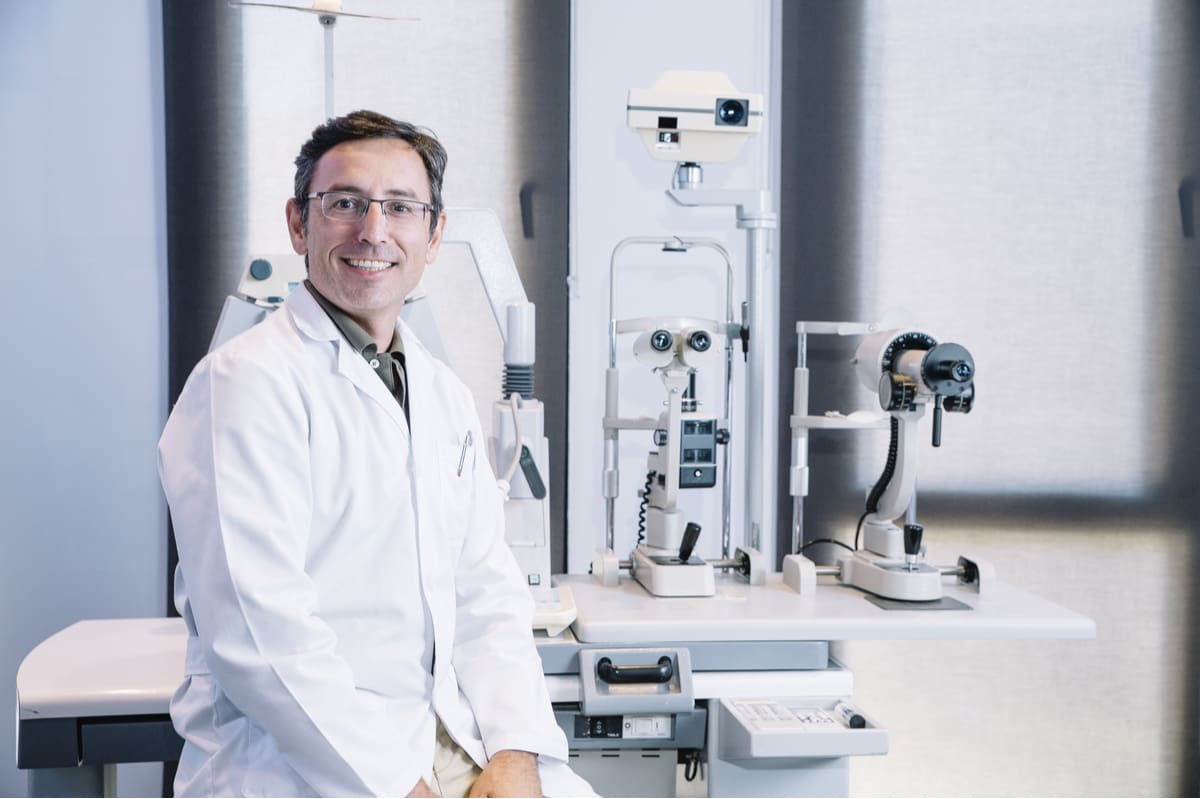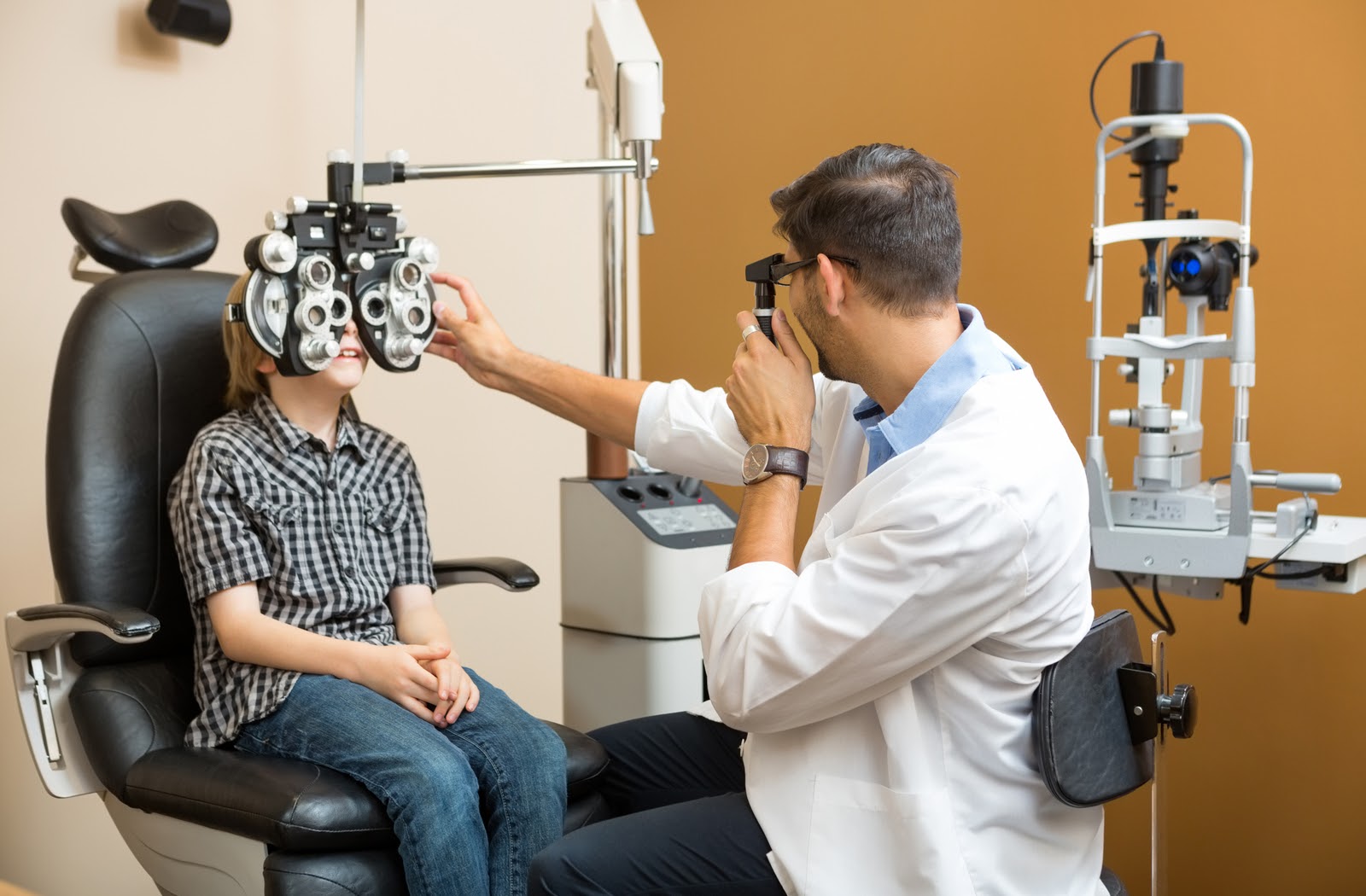Optometrist Montgomery: Top Quality Eye Care and Vision Solutions
Wiki Article
The Relevance of Routine Eye Exams: Insights From a Seasoned Optometrist
Regular eye exams offer as an important part of healthcare that prolongs past plain vision modification. An experienced eye doctor can supply insights right into just how these evaluations not just discover typical eye conditions however also reveal underlying health and wellness issues that may otherwise go undetected.Benefits of Regular Eye Examinations
Although numerous people might forget the significance of normal eye exams, these evaluations play an essential role in keeping general health and wellness and wellness. Normal eye evaluations serve not only to evaluate vision but likewise to detect early signs of systemic wellness issues, including diabetes and hypertension. By determining these problems at their beginning, clients can receive timely treatments, dramatically enhancing lasting results.In addition, eye examinations can help in monitoring existing health and wellness concerns, guaranteeing that any modifications in vision or eye health are promptly addressed (optometrist). The analyses enable individualized recommendations relating to eyeglasses, way of living changes, and protective procedures versus prospective eye pressure or damages
Beyond physical health, the benefits of normal eye exams encompass improving lifestyle. Boosted vision helps with better efficiency in daily tasks, from checking out to driving, thereby adding to greater self-reliance and safety. Ultimately, focusing on eye examinations fosters an aggressive technique to health management, equipping people to take charge of their wellness. Regular check-ups are a crucial element of an extensive healthcare strategy, guaranteeing that both vision and general wellness are protected throughout life.
Common Eye Conditions Detected
Normal eye tests contribute in identifying a range of common eye problems that can considerably impact vision and general health. Amongst the most widespread conditions identified during these assessments are refractive errors, including myopia (nearsightedness), hyperopia (farsightedness), and astigmatism. These problems usually materialize as obscured vision and can be conveniently fixed with prescription glasses or call lenses.
An additional common problem is glaucoma, a group of eye conditions that harm the optic nerve, commonly connected to raised intraocular pressure. Early detection is essential as it can protect against irreversible vision loss.
Age-related macular degeneration (AMD) is one more considerable problem that impacts central vision, especially in individuals over 50. Lastly, diabetic retinopathy, a complication of diabetes mellitus, can lead to severe vision problems otherwise checked on a regular basis. Via comprehensive eye exams, these conditions can be recognized early, enabling for prompt administration and therapy to maintain vision and improve lifestyle.
Significance of Very Early Detection
Very early detection of eye conditions plays a crucial function in maintaining vision and preventing substantial health and wellness difficulties. Lots of eye diseases, such as glaucoma, diabetic person retinopathy, and age-related macular deterioration, can progress quietly without noticeable signs in their onset. By the time signs manifest, irreversible damages may have taken place, bring about long-term vision loss.
Regular eye tests promote very early diagnosis, permitting for timely treatment and treatment. For example, treating raised intraocular stress can avoid the beginning of glaucoma, while managing blood sugar levels can substantially reduce the risk of diabetic person retinopathy. Furthermore, conditions like cataracts can be effectively handled with medical treatment when determined early.

Just How Frequently Should You Visit?
Identifying the frequency of eye examinations is essential for maintaining optimum eye health and wellness and vision. The general about his referral for grownups is to have a comprehensive eye examination every one to two years, depending on individual threat factors and age.Individuals with particular risk aspects, such as a family members background of eye illness, diabetes mellitus, or existing vision problems, might call for even more constant examinations. Children need to have their very first eye test at 6 months old, adhered to by extra tests at age 3 and prior to entering school. Routine exams throughout childhood are important as vision can change swiftly during developing years.
Ultimately, the regularity of gos to must be customized per person's conditions, including way of life, work-related hazards, and any kind of pre-existing eye problems. Consulting with an eye care professional can offer customized recommendations, guaranteeing that your eye wellness is regularly kept an eye on and preserved.
Tips for Your Eye Test
Planning for your eye examination can boost the effectiveness of the visit and ensure a detailed assessment of your eye wellness. To optimize your time with the eye doctor, it is crucial to collect pertinent information before your consultation. Begin by putting together a list of any kind of medicines you are presently taking, consisting of non-prescription medications and supplements, as these can influence eye health and wellness.Furthermore, record any kind of signs you have experienced, such as obscured vision, pain, or headaches. This info will assist your ophthalmologist in identifying potential problems. If you put on glasses or call lenses, bring them along, even if you do not wear them on a regular basis. This will help the physician examine any adjustments in your vision.
It is also useful to have a household history of eye conditions available, as hereditary go to this site elements can add to your eye wellness. Finally, take into consideration arranging your examination for a time when you are much less rushed, allowing you to ask inquiries and discuss your problems extensively. By preparing adequately, you guarantee that your eye test is effective and that your eye physician has all the required info to offer the ideal treatment feasible.

Final Thought
Routine eye exams play an important function in maintaining both vision and total wellness. Inevitably, prioritizing comprehensive eye evaluations adds considerably to the preservation of vision and the renovation of high quality of life, highlighting the need of regular eye care in precautionary health care approaches.Routine eye exams are critical in finding a variety of usual eye conditions that can dramatically impact vision and total wellness.Establishing the frequency of eye tests is vital for keeping optimal eye health and vision.Preparing for your eye exam can enhance the performance of the browse through and ensure index a thorough assessment of your eye health (optometrist). By preparing appropriately, you make sure that your eye exam is effective and that your eye medical professional has all the needed details to provide the finest care possible
Eventually, focusing on thorough eye evaluations adds significantly to the conservation of vision and the enhancement of top quality of life, highlighting the requirement of regular eye treatment in precautionary health care approaches.
Report this wiki page